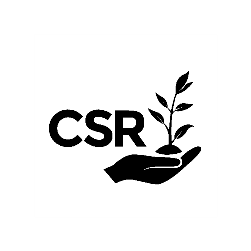When used strategically, corporate foundations can advance a company’s philanthropic goals. However, operating a corporate foundation comes with many legal obligations. A company’s social impact goals may often be achieved more effectively or efficiently through other strategies. Therefore, it’s critical to assess the value proposition of a corporate foundation, and understand the alternatives to achieving a company’s desired social goals.
Three Key Benefits of Establishing a Corporate Foundation
Provides Consistent Funding for Charitable Programs
A corporate foundation can be a vehicle to build up a charitable reserve in years of higher profits, allowing for a steady flow of charitable grants to organizations in leaner years.[1] Companies can donate appreciated assets or make a large infusion of cash to establish an endowment. Corporate foundations can be used to fund grants to public charities, pay employee matching grants, or administer scholarship programs for employees’ family members.
When grants are made directly out of a corporate giving department, the funds may be required to be expended during the period for which they are budgeted. This reduces the control the corporation has over the strategic timing of grants, including support of larger charitable projects. It should be noted, however, that many companies simply fund their foundation with the same amount as they grant out each year. When considering the compliance obligations that come with the operation of a tax-exempt entity (see below), a company with this type of funding and grant-making strategy may not find that a corporate foundation provides sufficient value vis-à-vis the regulatory burdens.
Accomplishes Strategic Programmatic Objectives
Companies are increasing their focus on issues that align with the companies’ brand(s) and the philanthropic concerns of their customer base. Financial institutions, for example, may emphasize financial literacy and inclusion issues, while athletic and outdoor gear companies may align their charitable giving towards healthy living and environmental protection initiatives. In many instances, companies want to not only make strategic grants, but also to operate their own programs that further their charitable objectives. Having a dedicated charitable entity through which the program will operate can help the business maintain its charitable mission focus.
Companies that decide to establish corporate foundations must ensure that they do not use charitable assets to improperly benefit the business. Companies should review any such initiatives with legal counsel to safeguard against violations of the IRS’s rules prohibiting self-dealing.[2]
Allows One Charitable Entity to Receive Steady Contributions Triggered by All or a Portion of Sales of the Company’s Goods or Services
A number of companies have formed corporate foundations that receive donations triggered by customer sales. Through this structure, the charitable cause becomes part of the brand identity. The IRS, recognizing that payments to charities can, in fact, benefit a business’s bottom line, issued a General Information Letter in 2016, stating that a new group of socially conscious companies formed as “benefit corporations” may treat payments to charitable organizations as a business expense rather than as a charitable donation so long as the payments “bear a direct relationship to the taxpayer’s business and are made with a reasonable expectation of a commensurate financial return.” The General Information Letter therefore clarifies that benefit corporations can take unlimited business expense deductions on their charitable contributions as opposed to limiting such deductions to the standard 10% cap for corporate donations to charitable organizations.
While IRS regulations do provide other advantages that come with the operation of a corporate foundation, such as facilitating employee matching grants and scholarship programs, today, a number of independent public charities exist that manage such programs for companies, obviating the need to form a separate foundation for this purpose. As such, these charitable programs no longer seem to be key drivers for companies to form corporate foundations.
Three Reasons Companies May Not Want to Establish a Corporate Foundation
Meeting the Compliance Obligations of Corporate Foundations Can Be Costly and Time-Consuming
A corporate foundation is a separate legal entity, whose board members owe a fiduciary duty to act in the best interest of the foundation. In addition, a separate annual financial report must be filed with the IRS. Corporate foundations that fundraise, either by being the beneficiary of charitable sales promotions conducted by their founding company, or by soliciting customer donations, may need to register to solicit charitable contributions in up to 38 states, each requiring annual renewal. The state registration process also requires the foundation to prepare and file audited financial statements, adding to the compliance burden.
Companies should evaluate whether the anticipated annual donations and the sought-after social impact outcomes are significant enough to warrant taking on the cost of compliance. In many cases, the same results could be achieved through a direct relationship with one or more existing charities, wherein the partner charities are responsible for their own compliance.
The Self-Dealing Rules Can Be Challenging
The IRS prohibits private foundations from engaging in certain financial transactions with certain “disqualified persons,” a category which includes the founding company. For example, the company’s provision of goods or services to the foundation at a significant discount would be a violation of the self-dealing rules (although donating such goods or services is permitted). Companies must carefully navigate any financial transactions, including shared expenses, to ensure that the corporate foundation’s charitable assets are not used in a manner that violates the self-dealing rules.
Certain Grants Require Burdensome Oversight Obligations
International grants and grants to non-charitable entities to support charitable activities may be undertaken by corporate foundations, but the federal tax code requires the foundation to follow special grant oversight procedures. Foreign grants also require additional oversight. Today, a number of charities serve as charitable giving vehicles through which donors (including corporations) can make such grants, and will undertake the required grant oversight, while the corporation can receive the full tax-deductible benefits. The fees charged by these third party charities to provide grant administration and oversight services may be less than the costs of operating an affiliated foundation, and come with the benefit of staff trained in the IRS’s requirements and best practices for grantmaking.
Companies Can Achieve Their Social Impact Objectives Using Strategies That Work Alongside, or in Place Of, a Corporate Foundation
Direct Corporate Giving
Companies can make direct tax-deductible donations to 501(c)(3) tax-exempt charities, either in the form of restricted gifts (documented through a grant agreement) to support a specific charitable purpose or program, or unrestricted grants. Companies are also uniquely positioned to donate significant volumes of in-kind goods to organizations that will distribute them to individuals, families, or organizations in furtherance of charitable purposes. Sponsorship agreements allow the company to connect its brand to the brand of a charitable partner and its programs. Many longstanding businesses strategically utilize direct corporate giving alongside the work of their corporate foundation. Walmart recently rebranded the collective corporate giving efforts of the company and its foundation under the new philanthropic name, Walmart.org.
Cause Marketing
Cause marketing campaigns, whereby the company advertises that the sale of its goods or services will result in a donation to a charitable organization or cause, or otherwise engages its customers to take actions to support a cause, can be conducted to benefit an unrelated charity or a company’s own corporate foundation. Partnering with a reputable independent charity allows the company to benefit from a charity’s strong reputation and proven record of making a real impact on a charitable issue. During the last decade Subaru of America achieved success by donating $140 million to four national charities and hundreds of local nonprofits as part of its annual Share the Love cause marketing campaign.
While less common, a few companies have made their own corporate foundations the beneficiary of cause marketing campaigns, and either fund the foundation’s own charitable program or support other charities addressing specific causes through strategic grants. Since 2000, the Ralph Lauren Corporation has sold a line of pink products to benefit the Pink Pony Fund, a program of the Polo Ralph Lauren Foundation focused on fighting cancer.
Collaborations and Joint Ventures with Established Nonprofits
Companies can collaborate with existing nonprofits to generate social good without forming their own nonprofit entity. This collaborative strategy is increasingly evident in companies’ corporate social responsibility (CSR) reports, which often highlight partnerships with nonprofits as a core strategy for fulfilling their CSR objectives. Given that nonprofits often have expertise and on-the-ground implementation capabilities on social and environmental issues, this strategy makes sense. In 2015, American Diabetes Association launched a joint marketing and communications initiative with the Hispanic television network Telemundo, aimed at improving overall health and wellness for Latinos in the United States. These types of collaborations are particularly successful because they leverage each partner’s core strengths in order to achieve their shared charitable and social impact objectives. Companies have also made strategic grants to fund research that will hopefully lead to more sustainable and responsible business practices.
Determining whether a corporate foundation will provide good value for a company ultimately depends on the company’s overall objectives, and should take into account the benefits and challenges of, and alternatives to, operating a corporate foundation. For this reason, performing a strategic assessment on whether to form a corporate foundation is a worthy upfront investment.
[1] Corporate foundations classified as private foundations under the Internal Revenue Code must distribute a minimum amount annually, equal to approximately 5% of their net investment assets each year, which must be used for charitable purposes, typically in the form of charitable grants.
[2] The IRS has carved out benefits to the company that are “incidental and tenuous” from the self-dealing prohibition, such as through positive goodwill and recognition received by the company arising from the shared name, but how that rule applies in various contexts should be carefully reviewed with legal counsel.
- Karen l. Wuhttps://perlmanandperlman.com/author/karenwu/
- Karen l. Wuhttps://perlmanandperlman.com/author/karenwu/
- Karen l. Wuhttps://perlmanandperlman.com/author/karenwu/
- Karen l. Wuhttps://perlmanandperlman.com/author/karenwu/













